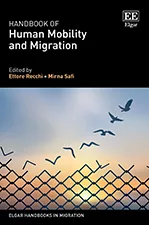While children have always been a part of migration flows, migration scholarship has, until recently, ignored their experiences. Seminal theories focused on adult male migrants, concentrating on how individuals or family units make rational decisions to maximize return on labor, diversify income sources, and pursue socioeconomic mobility by migrating to places where wages are higher.
In the 1970s, feminist scholarship began to question the validity of these explanatory frameworks, bringing attention to the experiences of women as independent migratory actors with their own agency and objectives that may not align with the interests of their families. More recently, a movement originating in childhood studies has called attention to migrant children as subjects worthy of investigation in their own right. Challenging the assumption that children are passive dependents or “luggage” transported across borders by their parents, this scholarship has shown that children exercise migratory agency both independently and within their families.
This chapter, which is part of the "Handbook of Human Mobility and Migration" reviews the literature on child migration, highlighting how children compare from adults in their migratory aspirations and migration decision-making, as well as in their experiences in receiving countries in the European and US contexts, where groups of children such as unaccompanied minors benefit from humanitarian protections unavailable to adults.

